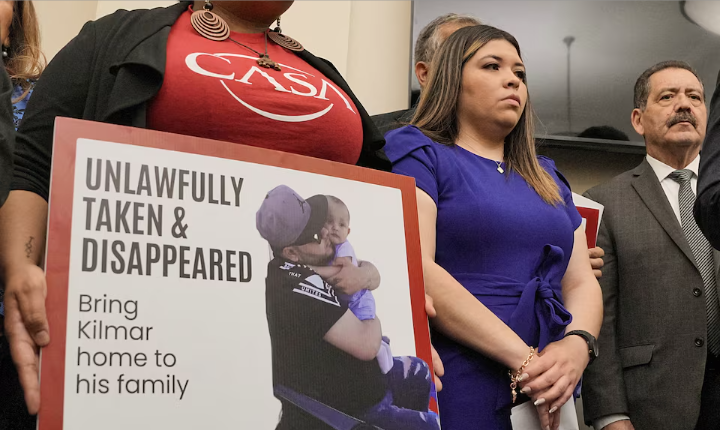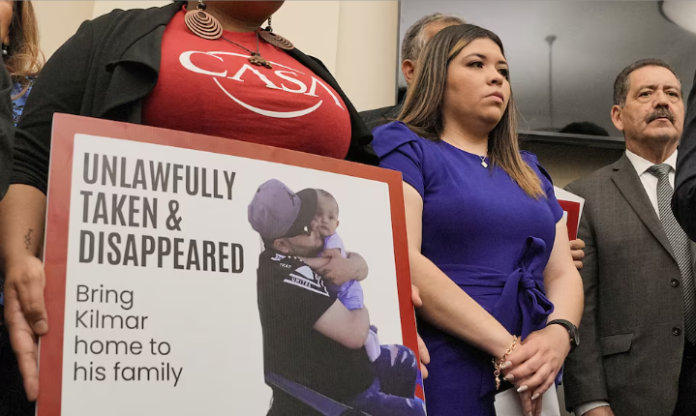In a dramatic late-night decision, the U.S. Supreme Court has temporarily halted the Trump administration’s fast-tracked deportation of Venezuelan migrants, citing concerns over the lack of due process. The ruling followed urgent pleas from the American Civil Liberties Union (ACLU), which argued that the administration was deporting detainees without giving them a fair opportunity to challenge their removal.
The court’s brief but significant ruling, issued just before 1 a.m. Saturday, instructed the government to stop deporting members of the affected group “until further order of this Court.” The decision came amid reports that some Venezuelan men had already been loaded onto buses for deportation, despite previous Supreme Court requirements for judicial review.
The controversy centers around the Trump administration’s use of the 1798 Alien Enemies Act, a wartime-era law, to expedite the removal of alleged members of Tren de Aragua, a criminal gang with roots in Venezuela. Trump has labeled the group a terrorist organization and claimed his executive authority grants him broad powers to deport individuals he deems threats to national security.
However, civil rights groups argue that the administration is abusing this power and failing to meet constitutional standards. Many of the migrants targeted have not been given adequate notice or a realistic chance to defend themselves in court, despite a Supreme Court ruling earlier this month mandating that they must be allowed time to seek habeas corpus relief — a fundamental legal right to challenge detention.
While the court’s decision is temporary, it sets up a significant legal battle that could define the limits of presidential authority over immigration. Conservative justices Clarence Thomas and Samuel Alito dissented from the ruling, suggesting a deep ideological divide within the court itself.
The ACLU expressed concern that the administration was attempting to rush deportations before the courts could intervene. Lawyers say migrants were handed notices identifying them as “Alien Enemies” subject to immediate removal — some reportedly refused to sign these documents in protest.

In public comments, Trump downplayed the issue, saying he wasn’t familiar with the specific cases but supported removing “bad people.” Critics, however, argue that many of those facing deportation have no criminal ties and are being targeted without evidence.
The decision also highlights growing tension between the executive and judicial branches. Trump has previously ignored or criticized court orders, even calling for the impeachment of Judge James Boasberg after a prior ruling blocked parts of his immigration policy. This latest development risks deepening the conflict and could trigger a broader constitutional confrontation.
So far, over 130 suspected Tren de Aragua members have been deported, but human rights advocates say many had no opportunity to prove their innocence. The administration has yet to clarify how much notice it plans to give detainees before removal, while legal experts are calling for at least 30 days.
As the courts await further input from the Fifth Circuit Court of Appeals, the Supreme Court’s intervention offers a temporary shield for the Venezuelan migrants — but the broader legal and political battle is far from over.



